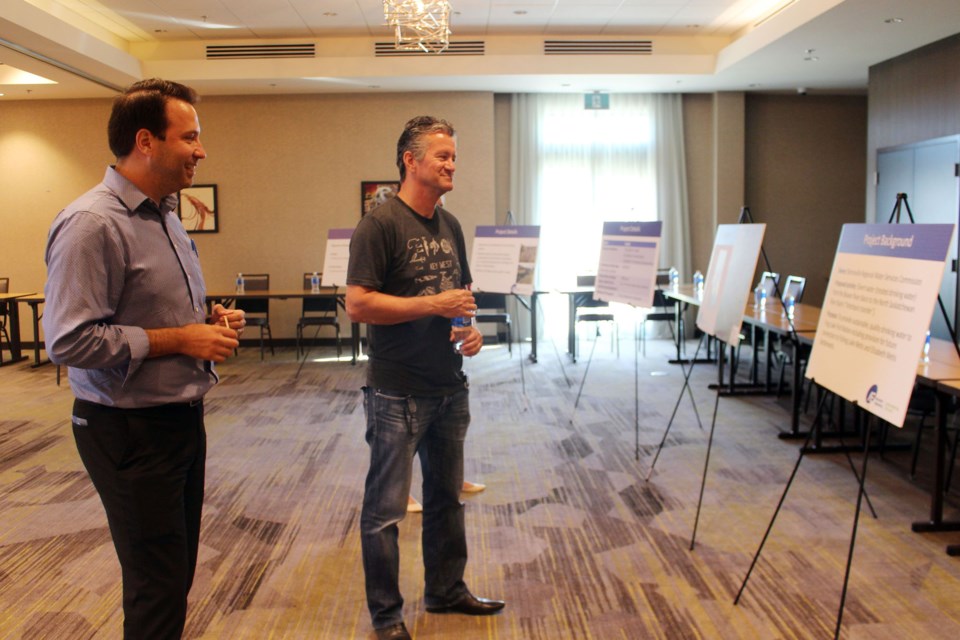BONNYVILLE – Cold Lake water could soon be flowing to local first nations and Métis communities through tie-ins to the regional waterline.
On Tuesday, July 28, the Bonnyville Regional Water Services Commission hosted an open house to discuss the proposed application for an inter-basin water transfer from the Beaver River basin to the North Saskatchewan River basin to provide potable water to Frog Lake First Nation.
Future connections will also be considered to Elizabeth Métis Settlement and Fishing Lake Métis Settlement.
“We all know there’s been water quality issues on the settlements and reserves,” noted MD of Bonnyville Reeve Greg Sawchuk, who’s also the chair of the Bonnyville Regional Water Services Commission. “If we can get them good quality water it will be great, and Cold Lake is the best source going.”
Mark Power, CAO for the commission, explained an inter-basin transfer has a regulatory process that must be approved by legislature, and receiving feedback is required by the government.
“(The open house) is not to supersede the formal consultation process that has to go on with our indigenous groups, because that will be a formal process that will take place later,” he said. “This was just a preliminary engagement process in case anybody wanted to know about the line, where it’s going, where the proposed route is, and how big it is.”
The proposed line to would be an extension of the regional waterline currently being constructed from Cold Lake to Bonnyville, and was already planned for in the initial designs.
“The volume of water in the license to the Cold Lake Regional Utility Services Commission, and the preliminary design of the pipe that goes to Bonnyville, was all based on tying this line in and serving Cold Lake First Nations, Frog Lake First Nations, Elizabeth Métis Settlement, and Fishing Lake Métis Settlement along the way,” Power detailed. “It’s big enough to handle it, but there’s a bunch of paperwork that has to be done first.”
There would be an approximately 47-kilometre transmission mainline in the proposed project and a booster station. The new transmission line would send a maximum of 570,000 cubic metres of water annually from the connection point to Frog Lake First Nation and the Métis settlements in the future.
It would provide safe and clean drinking water year-round for those communities.
City of Cold Lake Mayor Craig Copeland said, “The province has selected Cold Lake to be the regional water source and they’ve identified 100,000 people that can utilize Cold Lake for drinking water. Frog Lake has had some really big issues with their drinking water, so this project fits in if the province or the federal government can find funding for Frog Lake. Why not have safe drinking water?”
The next steps in the process include a regulatory review in the fall, and preliminary design and land acquisition are anticipated for the spring of 2021. A start date for construction on the extension won't be set until after provincial funding is secured.



